
“I am assuming that these are harmless millipedes,” states our reader about the organisms that she has been finding in her garden and basement. She lives in Portland, Oregon and is experiencing an “infestation” “after bringing leaf mulch” into her garden “from another garden two years ago.”
Before introducing this leaf mulch two years ago, our reader never had any issues with these critters, which she correctly identified as millipedes. She is also correct in labeling them harmless, as the most millipedes can do is secrete a toxin that might irritate the skin upon contact with the millipede. Our reader states that although she knows millipedes to be harmless, their numbers are growing to an extent where she thinks they might be having a negative impact on her garden. “I think they are eating some of my plants and interfering with seed germination. But it’s mostly just creepy to have so many of them around.” We understand this sentiment, though we question the idea that millipedes are eating her plants. The millipede’s diet consists primarily of decomposing organic matter, which includes leaf mulch, sticks and firewood. They do not tend to eat live plants and have not been known to be a garden pest. In fact, they are usually a welcome sight in the garden, as they break down the matter they eat to produce a nutrient-rich fertilizer, similar to the earthworm.
That being said, we can understand that when numbers climb and one’s garden becomes infested with millipedes, then they could have a negative environmental impact. It could be that they are overeating and driving out other organisms that otherwise might have lived in the soil and contributed to the soil ecosystem. “I’m not clear why they proliferate so vigorously in my garden. Sometimes I will pick up a leaf and there will be a nest of 100 under it.” We are not sure if our reader is speaking hyperbolically, but it is clear from her descriptions and her photographs (which are excellent, by the way) that their numbers have gotten out of hand. What is interesting to us though, is that our reader seems to answer her own question in the following sentence of her query. “I have a tightly packed vegetable garden and it gets watered daily and has lots of decomposing matter.” Having “lots of decomposing matter” is practically millipede bait. That is exactly the kind of place millipedes would thrive, and thus is likely why they are reproducing at such a fast rate; the conditions are simply ideal.
Additionally, our reader has been finding millipedes in her basement. She says that after reading up on millipedes on our website, she understands that the millipedes have been drawn to the basement either when it is very hot in the garden or when it starts to rain and it is “too wet for them.” This is partially correct. Millipedes thrive in moist and cool environments and do tend to go into people’s basements (where it tends to be cool and damp) if it is too hot and the climate outside is dry. However, they will not seek shelter from the rain because it is “too wet” as this is the sort of environment they prefer. Our reader continues by saying that then the millipedes die in the basement as there is a lack of moisture and organic matter for them to eat, which is correct.
“I live in a very old house and I don’t think there’s any way to seal it up,” our reader concludes her query before asking us if we have any ideas about how she can manage the infestation. Lastly, she adds that she would like to find some “natural predators” to put in her garden so that she can “balance” out the “critters” and not have so many millipedes. Firstly, it might still be worth contacting a professional to come check out her house (if the ongoing pandemic permits it) as there could be ways to seal the cracks that our reader is worried about. Secondly, to control the infestation, there are several things one can do. In terms of her garden, our reader can remove excess leaf mulch as well as spread out what she wants to keep so that it does not stay wet as long and dries out. She might want to do the same for the unspecified decomposing matter in her vegetable garden. In one of our reader’s photos, we can also see the millipedes crawling in and around a pile of rocks (see photo below). These types of environments are ones that millipedes love, piles of rocks, sticks and leaves where they can seek shade and shelter. So, removing this pile of rocks would likely also help control their numbers. Furthermore, any other excess organic matter that can be removed should be, especially that which is close to the home, as this helps prevent the millipedes from considering going into the home. Terro recommends leaving 12-18-inches bare between one’s home and any mulch.
On that note, when it comes to her basement, we recommend getting a dehumidifier and cleaning out any potential decomposing matter that might be there; this will make the climate uninhabitable for any millipede. Lastly, we do not recommend introducing alien species as a form of control. Doing so can backfire, and one can end up with another infestation, and one that is potentially worse for our reader’s garden. At least millipedes are environmentally beneficial, but if you start introducing predators in the garden, they could overeat and kill all the organisms that might be helpful to the sustainability of our reader’s garden.
To conclude, the organisms infesting our reader’s garden and basement are indeed millipedes. While they are harmless, we understand that having this many of them can be unsettling, and too much of a good thing could be harmful for her garden, rather than beneficial. Our reader started her query by saying “long winded… I know” and we hope our reader has found this equally long winded response helpful and that it has answered her question about managing millipede infestations. We wish her the best of luck with her garden and with controlling these millipede numbers!
All About Worms is always free, always reader-supported. Your tips via CashApp, Venmo, or Paypal are appreciated! Receipts will come from ISIPP Publishing.
You might also find these guys interesting!







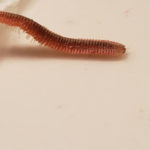
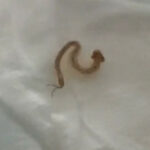
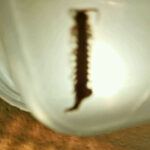
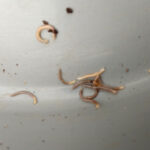
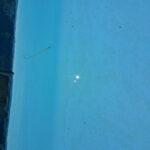
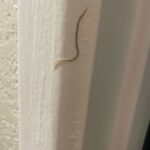
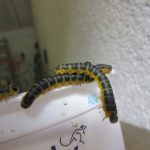
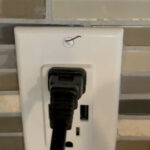

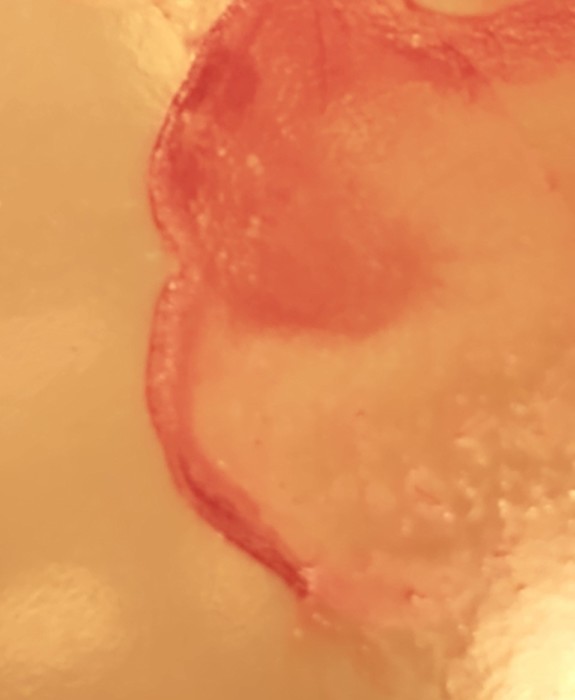

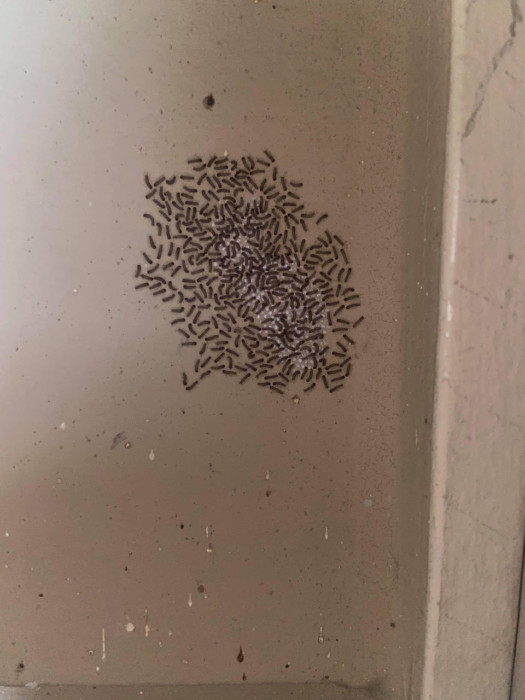


Worm researcher Anton answered this question for me a few months ago and I wanted to write an update. But first I want to say that the humor and enthusiasm that these questions are answered with is remarkable. Clearly the writers take a lot of time and look at a lot of pictures that are not always pleasant and often not in focus to answer the questions. It’s an amazing public service.
Our “infestation” is gone. Even though we have an old house and we did not think we could seal the basement we did add mortar to the corners of the floor where the Millipede seemed to collect because it was darker and there was dirt gathered there. We also caulked all the corners and around the windows as much as we could. There’s still lots of places where you can see daylight from the basement but that seemed to do the trick to keep the millipedes out of the basement. Either that, or because in mid summer in Portland it is very dry, the population just went down.There are also many fewer of them in the garden. Thanks Anton, I’ll be sure to get in touch if I think I have a parasite!